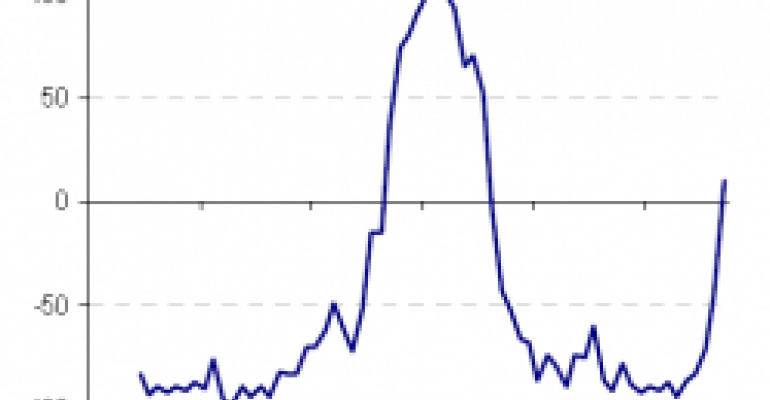Recent market events and political turmoil going on in Europe has left fund managers there with a bad taste in their mouths. A recent Bank of America Merrill Lynch Global Research survey fielded between Sept. 1 and 8 showed a pessimistic group of fund managers, with 55 percent of European fund managers expecting to suffer two quarters of negative real GDP growth over the next year, compared with only 14 percent with the same sentiment in July of this year. The percentage of European managers expecting a recession is on the rise:
Could we be slipping into another bear market? What ever happened to this multi-year bull market we were supposed to be in? As if the outlook wasn’t negative enough, the survey also found risk appetite at its lowest level since March 2009, with a net 45 percent of investors taking lower risk than normal relative to their benchmarks. More are sitting in cash, with more than one-third of investors overweight cash with an average allocation of 4.9 percent. Investors have also been turning from equities to bonds. “The survey shows that sentiment on Europe is now so negative that contagion risk to the rest of the world has risen significantly,” said Gary Baker, head of European Equities strategy at BofA Merrill Lynch Global Research. “The current very extreme levels of risk aversion indicate that it is time to look for contrarian trades,” said Michael Hartnett, chief Global Equity strategist at BofA Merrill Lynch Global Research.
Where are those contrarian trades? According to BofA/Merrill Lynch, that includes being long equities, global banks, Europe, Japan utilities, emerging market resources. On the short side, contrarian moves would be cash, European energy and staples, U.S. technology and emerging markets consumer.

